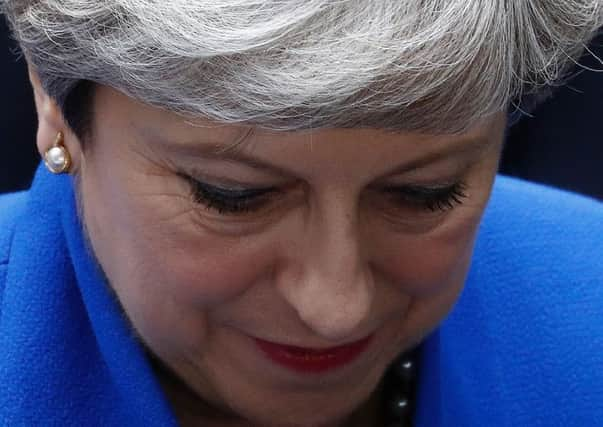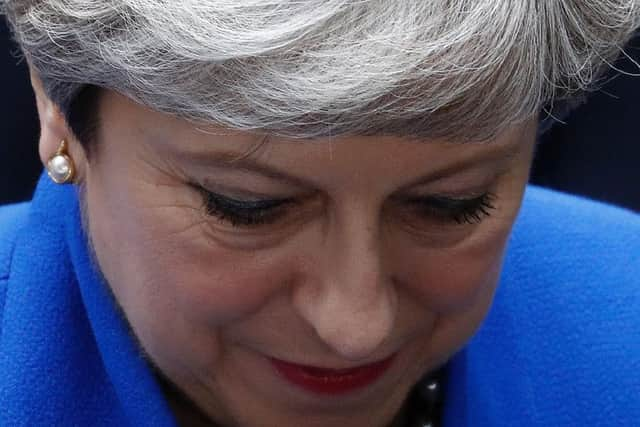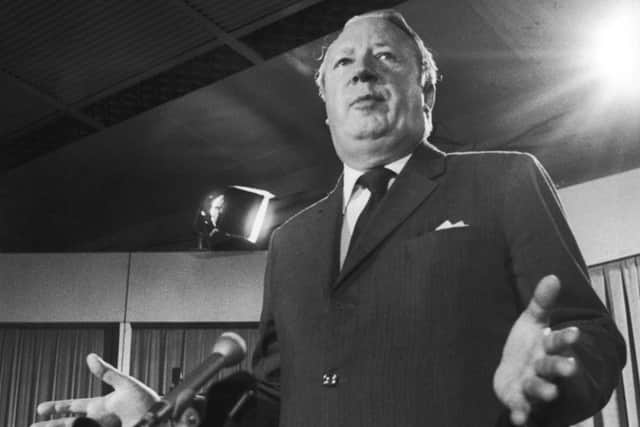Brian Monteith: Theresa May is damaged but Labour lost election


It was back in February 1974 that Conservative prime minister Ted Heath called a surprise election even though he enjoyed a working majority.
He reasoned it was necessary to seek a fresh mandate from the British people over who governed the country after a number of debilitating strikes that had all the appearance of being politically motivated to challenge his authority. At a time when practically every large British industry was state-owned, the trades unions wielded huge power and he wanted to rein them in. It looked like the public was with him, but his opponent, the former Labour prime minister Harold Wilson, managed deftly to move the debate away from trades union power and towards the other pressing issue of the rising cost of living that had resulted from Chancellor Tony Barber’s expansionist Budgets.
Advertisement
Hide AdAdvertisement
Hide AdThe Tories were rattled; Wilson’s argument that the unions were only trying to help their members keep up with price inflation found sympathy. Heath failed to get a majority and limped on until October when after another election he lost completely.


The general election campaign of the last seven weeks has reflected much of Ted Heath’s unfortunate experience.
Theresa May, with 330 MPs and a tight but manageable working majority, surprised practically everyone, including many in her cabinet, by calling a general election.


May justified this by arguing it would strengthen her hand in the coming Brexit negotiations if she were given a greater mandate than the one she had inherited from David Cameron.
With a consistent lead in the polls of over 20 points it seemed a canny, if risky, strategy that relied upon Jeremy Corbyn being recognised as a weak leader without the support of his own MPs and a history of supporting countless terrorist organisations at home and abroad.
Learning from Harold Wilson, Jeremy Corbyn and his campaign team neutralised Brexit as a defining issue.
Back in April the shadow Brexit minister Sir Keir Starmer had already said, “membership of the Single Market is incompatible with our clarity about the fact that freedom of movement rules have to change”, clarifying later he meant “freedom of movement will have to end”.


Now Corbyn went further and on page 28 the Labour manifesto stated bluntly: “Freedom of movement will end when we leave the European Union”, meaning that both Tory and Labour parties were campaigning for what is termed by supporters of EU membership as a “hard” or “closed” Brexit.
Advertisement
Hide AdAdvertisement
Hide AdInstead of differing approaches to Brexit becoming the dominant issue that May could use to appeal to Labour and Ukip supporters, the focus changed to the disastrous Conservative manifesto launch, the subsequent retraction of the social care policy and a Prime Minister who appeared wooden and easily wounded by face-to-face critics.
May’s team – and her supportive pack of media titles – never campaigned on the economy and how its recovery should be protected, nor did they argue how Labour’s manifesto promises would actually do the reverse of what was promised and instead transfer wealth from the many to the few.
Free tuition fees, designed by Labour to galvanise the youth vote, is a transfer of wealth from the majority of low-paid working taxpayers to a minority of mainly middle class adolescents.


That it attracted young people should come as no surprise, not once did I hear a Conservative turn the Labour manifesto on its head and defend tuition fees as a cost to the few that is fair to the many.
Unfortunately for the Conservative candidates, their party’s campaign was entirely absent of any intellectual rigour and was unable to respond.
Indeed in a brash attempt to win Labour voters, it even promised a price cap of energy prices that the party had rejected when Ed Miliband had proposed it in the 2015 election.
By contrast, the Scottish Conservative & Unionist campaign was clearly focused and Ruth Davidson stuck to the single issue that would bring it sufficient supporters from all parties – rejecting the threat of a second independence referendum.
By her pugnacious and reasoned questioning of the First Minister Nicola Sturgeon over the past year, the Scottish Tory leader had put her party in the driving seat of the main vehicle to reverse the seemingly unstoppable SNP juggernaut.
Advertisement
Hide AdAdvertisement
Hide AdThe results were a revelation, and with a better Tory campaign south of the Border could possibly have won even more seats.
Now, with Theresa May losing her working majority, all sorts of wild claims are being made that require correction.
The first is that there is somehow a need for the government to change its negotiating stance for leaving the EU. This claim is little more than a combination of flawed logic and opportunism.
Both Labour and the Conservatives sought the public’s support on a mandate of leaving the European union in a manner that will mean regaining full control of immigration – which also means leaving the Single Market.
There is, correspondingly, no mandate from the British people for a “soft” or “open” Brexit, whatever the terms might mean.
Brexit does and will continue to mean Brexit.
The second claim doing the rounds is that Jeremy Corbyn had victory snatched from him and is the prime minister in waiting.
This is also wrong and it would be disastrous for the Labour Party to believe it.
Jeremy Corbyn should be seen as a loser, he failed to defeat the worst Conservative general election campaign in living memory, with the worst Tory manifesto and an opponent who consistently ducked appearing in publicly accountable debates.
Labour lost the election. It is as simple as that.
Making some gains might be progress but it is not victory.
Advertisement
Hide AdAdvertisement
Hide AdThere is no doubt in my mind that had Labour possessed a leader with even modest communication skills and without extremist baggage then Labour would now be forming a government – and deservedly so.
A better judge of character than Corbyn would never have surrounded himself with political-accidents-in-waiting such as Diane Abbot, or allow himself to be branded as antisemitic or a friend of terrorists – especially at a time of heightened terror attacks.
Theresa May will undoubtedly be replaced at some point, as she has lost her authority within her own party and the British people.
Nevertheless, she retains more support than Jeremy Corbyn and should be allowed to form a government with the help of the same Democratic Unionist Party that Gordon Brown previously courted.
Theresa May is no Margaret Thatcher after all, but she might well be Ted Heath in disguise.
-Brian Monteith is a director of Global Britain
